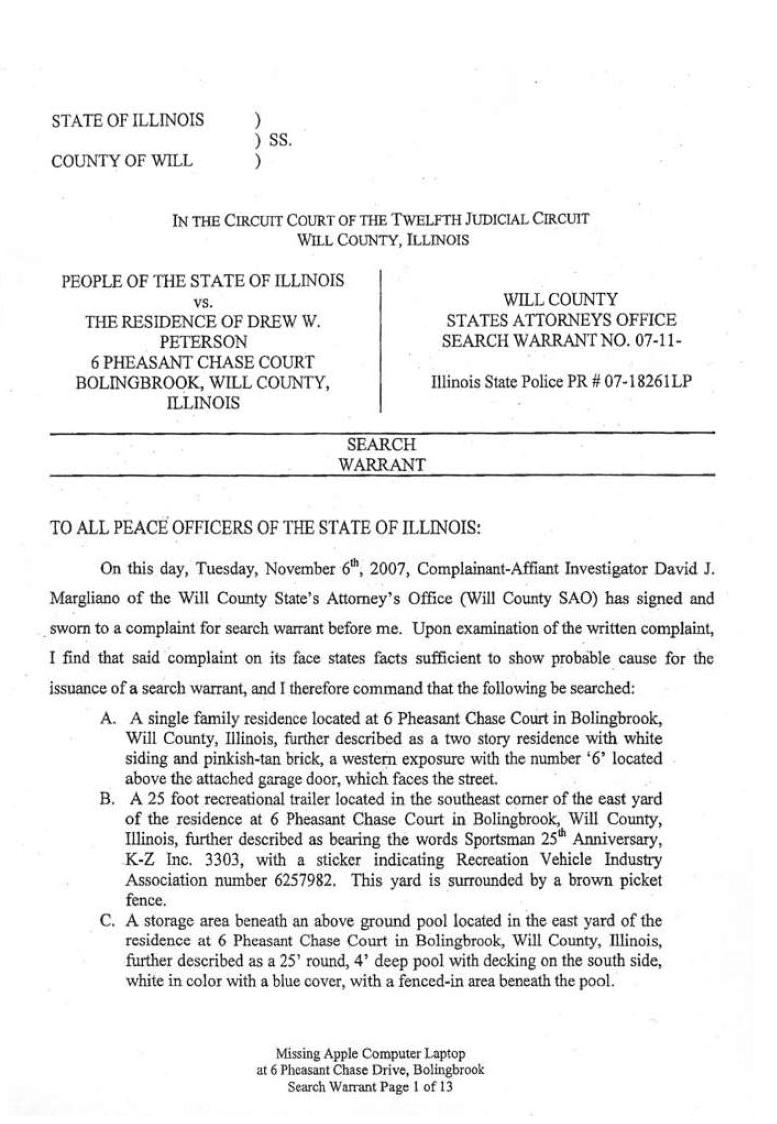
The Fourth Judicial Circuit encompasses the greater Jacksonville area and includes Duval, Nassau and Clay Counties. At the county level, you can inquire with the county sheriff and with the county clerk of court. If your name does not appear in the Florida Crime Information Database, you can try searching by county. Also, although unlikely, there is a possibility that a warrant contains your name or other identifying information due to the use of false information by the true subject of the warrant. Further, even if your name does appear in the database, you should verify the warrant with your local law enforcement agency, as the warrant may no longer be active.

Therefore, if your name does not appear on the database that does not definitely mean there is no pending warrant for your arrest in Florida. The database contains Florida warrant information as reported to the Florida Department of Law Enforcement (FDLE) by law enforcement agencies throughout the state and authorized for release to the public.īeware, however, the database does not reflect every warrant pending in the state. First, you can visit The Florida Crime Information Database website. If that is your situation, you have several options to use in trying to determine your warrant status.

It is not only a psychological relief, but it is also much more convenient and less embarrassing to resolve an outstanding warrant voluntarily than to be caught off guard and taken to jail without any forewarning or preparation.Īs a threshold matter, you may suspect there is a warrant for your arrest but you may not be absolutely certain. If You have Outstanding Florida Criminal Charges - Contact Us About a Statute of Limitations DefenseĬontact Pawuk & Pawuk today to find out if you have an outstanding Florida warrant and your case might be dismissed based on a Statute of Limitations defense.If you have an outstanding warrant in Florida it is usually a good idea to deal with it sooner rather than later. The period of limitations does not run during the time a defendant is continuously out of state or has no reasonable ascertainable place of abode or work within the state. Even worse is that the statute states: "Failure to extradite a defendant from another state does not constitute unreasonable delay." The person is released, but that scenario can repeat itself.

That means if they tried to look for you and your weren’t there and they can prove you moved out of state – the statute of limitations doesn’t apply.Ī typical scenario we deal with is when an individual is arrested out of State but the Florida law enforcement agency chooses not to extradite. If you are continually out of state, and they tried to look for you – the statute of limitations period tolls.
#Fdle warrant search license
However, if the police later pull up your out of state driver’s license and confirm your new address, that would probably be considered a diligent search. Then, if the police go to your last known address and your roommate tells them you moved to California, that might be considered a diligent search for you. So if you commit a Grand Theft from Walmart and happen to move to California the next week, the State Attorney’s Office might charge you while you are gone. Absence from the State / Inability to Locate the Defendant after Diligent Search To prove that, the Court can look at evidence such as whether you left Florida. That means that if you were not arrested, but the State filed a charge against you, the police have to prove that they actually tried to serve you with a warrant (capias). If you were not previously arrested, the time commences when an indictment of information is filed “provided that the capias (warrant), summons or other process issued on such indictment or information is executed without unreasonable delay.” If you were arrested or issued a summons, the time commences when the State Attorney’s Office files an indictment, information or other charging document. Normally, it starts after every element of the offense is committed. The tricky part is determining when the statute of limitations clock starts to run. How much time does the State Attorney have to file charges? (None of this applies to a probation warrant – there is no statute of limitations with those.) It's important to know your options if you have an outstanding warrant in Florida. No Statute of Limitations for Florida Warrants!Ī Florida warrant never goes away – we’ve handled cases in New Port Richey, Clearwater, and Tampa that were over 20 years old. Capital Felony, life felony or felony resulting in death – any time.If you were charged with a crime in Florida, the Statute of Limitations law requires the State Attorney’s Office to prosecute you within a specific number of years or the case must be dismissed:


 0 kommentar(er)
0 kommentar(er)
